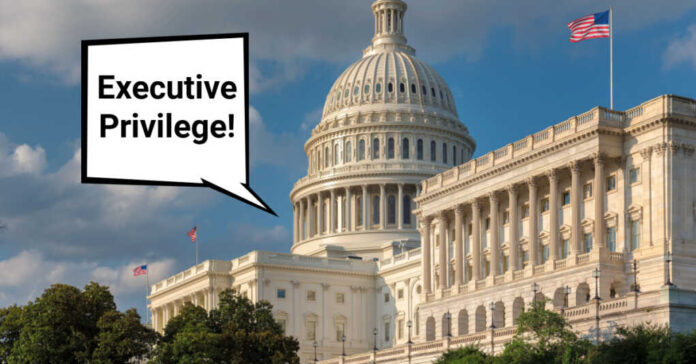
As the investigation into Joe Biden’s potential involvement in his son Hunter’s business activities unfolds, the White House is becoming more defensive. They are using “executive privilege” to prevent the release of about 200 documents from the National Archives (NARA). These documents relate to Hunter Biden’s business interactions during the Obama administration, as outlined by America First Legal (AFL).
In response, AFL has initiated a lawsuit to obtain these records from NARA, covering the period from January 2011 to December 2013, when Hunter Biden’s company, “Rosemont Seneca,” played a prominent role. NARA’s argument for withholding these records centers on their classification as containing “confidential advice” exchanged between then-Vice President Joe Biden and White House advisers.
While NARA has provided 861 records that aren’t covered by “executive privilege,” there is still an effort to block the release of additional records. These records are of particular interest to the investigation as they relate to Biden’s use of fake email aliases while serving as vice president, such as “Robert Peters,” “Robin Ware,” and “JRB Ware.”
Gene Hamilton, Vice President and General Counsel at America First Legal, emphasizes the significance of these records, stating they provide further evidence of the close connections between Hunter Biden’s international business dealings and the Office of the Vice President during the Obama Administration. Hamilton argues that “The evidence accumulating against the Biden family’s wrongdoing is substantial.”
America First Legal’s pursuit of these emails involves Hunter Biden’s early business ventures with Rosemont Seneca Partners, which had ties to individuals like Devon Archer, Eric Schwerin, CCP-affiliated entities, and Che Feng, referred to as the “Super Chairman.” Through this connection, Hunter Biden established BHR Partners, in which his company, Skaneateles LLC, obtained a ten percent equity stake. BHR Partners is co-owned by the state-controlled Bank of China and has significant global capital resources.
In April, it was revealed that Hunter Biden had transferred his stake in BHR Partners to his lawyer, Kevin Morris, in 2017. Similarly, Devon Archer transferred his stake in BHR Painters to his wife.
Recently revealed emails disclosed by AFL shed light on Hunter Biden’s role in organizing a state dinner for Chinese officials at the White House in 2011, shortly before his visit to China to establish crucial connections for BHR Partners. Additionally, these emails show frequent direct communications between Hunter Biden and his business associates with the office of then-Vice President Joe Biden. These communications included access to privileged information related to White House guest lists, seating arrangements, and official events, including state luncheons and dinners.
However, the question remains: will citing “executive privilege” hinder the investigation? Executive privilege is a legal concept allowing parties to withhold sensitive information and documents to protect confidentiality and the decision-making process within the executive branch. It is typically used when there’s a dispute with other branches of government over information release.
There are several ways to challenge executive privilege. The first is through judicial review, where courts assess the necessity for the information against executive privilege claims, ordering its release if it overshadows the need for security.
Another approach involves negotiation, as disputes can be settled through compromise, with the executive branch granting limited access in exchange for concessions.
Through legislative action, Congress can mandate disclosure through subpoenas and legal actions, effectively challenging executive privilege assertions.
Moreover, public and political pressure can exert influence. When there’s widespread demand for transparency or political pressure, the executive branch might opt for voluntary disclosure to avert adverse consequences.
Finally, the President holds the authority to waive executive privilege, voluntarily releasing information when deemed necessary to address public concerns or cooperate with investigations.
Claiming executive privilege will not end the investigation of the Bidens, but it presents a significant roadblock for uncovering the truth.
For now, as the administration scrambles to protect the president, watching the walls crumble around the Bidens is, at least, somewhat entertaining.







